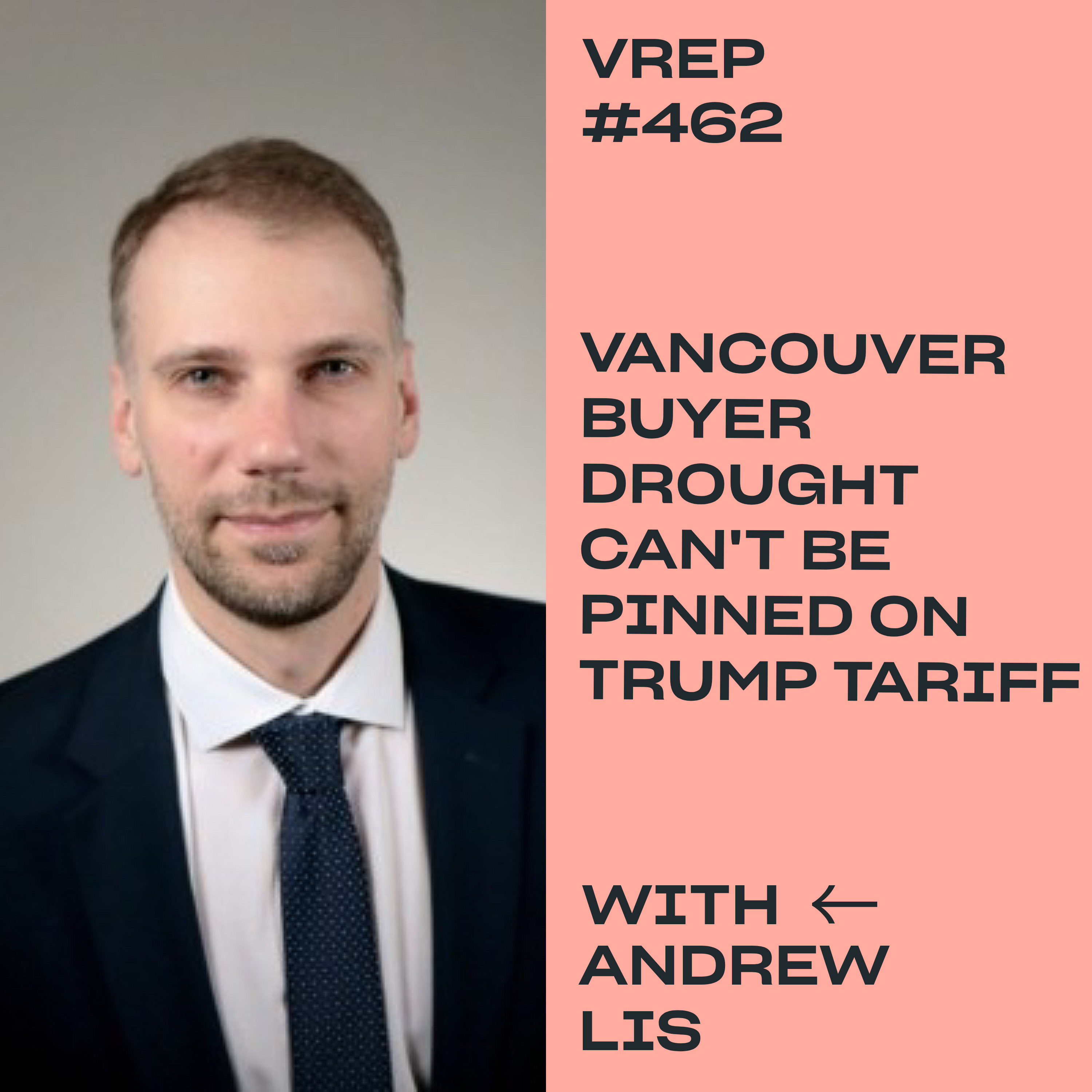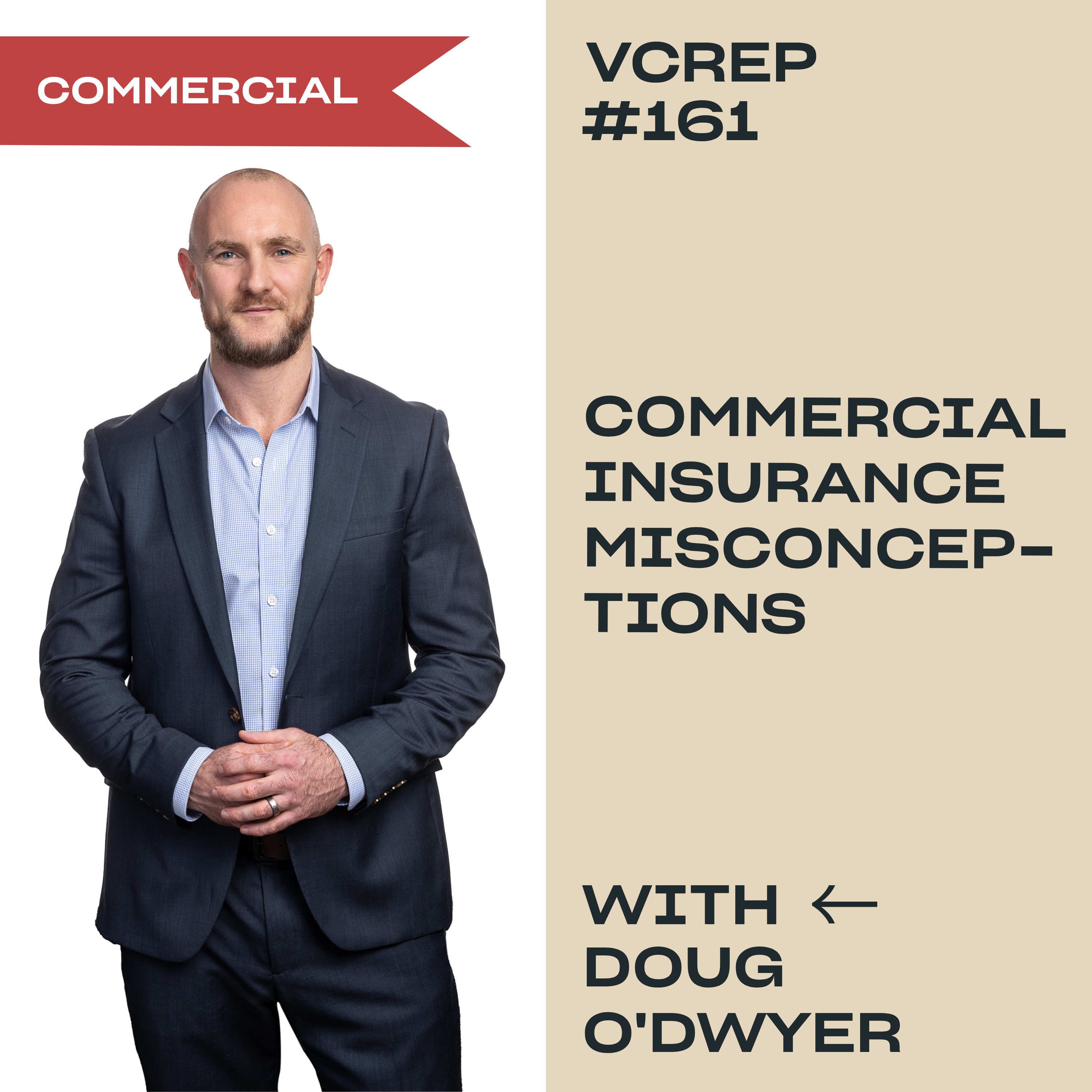Episode 253 – December 10, 2020
Listen On: Apple Podcasts | Spotify | Google Podcasts
Problem: how do we make Vancouver an affordable and sustainable city by 2060? Solution: well, you’ll have to listen to today’s guest. Patrick Condon, Professor at UBC School of Architecture + Landscape Architecture, author, and former city planner, joins Adam & Matt to offer some thought-provoking solutions to the challenges facing our city. And, no, this is not another supply episode about building our way out of this problem; in fact, it’s quite the opposite. What will Vancouver look like in 2060? Why has our market proven so resilient? And will real estate prices ever come down? Listen and subscribe today.
Listen to Episode
Guest Information

Patrick Condon
Patrick has over 25 years of experience in sustainable urban design: first as a professional city planner and then as a teacher and researcher. Patrick started his academic career in 1985 at the University of Minnesota before moving to the University of British Columbia in 1992. After acting as the director of the landscape architecture program, he became the James Taylor Chair in Landscape and Liveable Environments. In that capacity he has worked to advance sustainable urban design in scores of jurisdictions in the US, Canada, and Australia. Patrick has also led the Sustainability by Design project by the Design Centre for Sustainability. For over 20 years, the Design Centre and James Taylor Chair worked on a variety of projects and books to contribute to healthier and more sustainable urban landscapes.
Episode Summary
Please tell us about yourself.
I’ve been in Vancouver for almost 30 years, teaching previously in the United States and working as a city planner. Most of my research has been focused on city design and how cities can be more sustainable, both socially and environmentally.
I grew up in the Boston area. My biggest shock was moving from Massachusetts to Minnesota. When I moved to Vancouver, it actually felt familiar in many ways. I felt at home here.
We’ve heard a lot about long-term changes for how people will want to live due to covid. Has covid changed the trajectory for urban landscapes?
There is truth to the hollowing out of office spaces. There’s some evidence that people are moving out to the suburbs, reversing the trend of people living in denser areas. But I don’t see the issue of people moving out of Vancouver because of covid as a significant phenomenon.
I still think the biggest issue here is unaffordable housing close to where you want to work. So if you can’t afford to live in Vancouver and you want to have a family, you have to move out to Langley and beyond. So the consequence is long commutes that congest our freeways and put demands on our transit system. The larger issue for us in Vancouver is inequality and people not being able to find affordable homes.
People who predicted a collapse in real estate prices in Vancouver during this pandemic have proven to be wrong. There’s been remarkable stability at the lower price ranges, and even increased property values.
Chasing affordability is a larger factor than anything that was provoked by this pandemic. The occupancy of office buildings is a different issue.
What does the idea of Vancouverism by Larry Beasley get right and get wrong?
I admire Larry Beasley greatly but one mistake he has noted himself is not anticipating how expensive the product would become. In the 1980/90’s, you could buy a two bedroom condo in Yaletown for under $300,000, which is ludicrous now. The average salaries have not grown with the housing costs. Downtown living has gone up 300% in real terms but incomes have not. And that’s a fact Larry Beasley has been quick to admit now.
We’ve all been waiting for the bubble to burst for 20 years. No one could have anticipated the global appetite for Vancouver’s real estate. It’s the same thing you’re seeing in Sydney, Melbourne, Paris, Shanghai, etc. We call it Vancouverism but it has flourished. Investors see Vancouver real estate appreciating more than stocks and bonds; you can’t go wrong with Vancouver real estate.
Let’s talk about your recent project, Imagining an Affordable Vancouver for 2060. Can you tell us more about it?
The students I work with in this project come from all over the world. This provides a rich addition to our conversation. I’ve long been interested in affordability. These students came to this project with their own experiences of affordability in their hometowns.
The City of Vancouver has the most unaffordable housing in the world, with the possible exception of Hong Kong. That’s incredible considering we’re not a major business centre like San Francisco or New York. So what are we doing to make this place so expensive?
I was shocked that housing affordability was low on the list of the city’s priorities. To me, housing is our number one problem and solving that crisis should be our first priority. That gave me the impetus to explore this through our project. We wanted to provide some models that would be helpful. We focused on existing neighbourhoods throughout the city and how we could grow them organically to add density and enhance affordability.
What have we done to make Vancouver so expensive? How did we get to where we are?
We have to ask: What makes Vancouver an attractive place to bring your money if you have money to bring? We’ve been very receptive to international capital for many years. We’re only now beginning to try and rebalance this investment environment so that our own local people aren’t left behind, with things like the empty homes tax.
We also need to realize this isn’t a local phenomenon; it’s a global phenomenon. It’s curious that we attract all of this capital, despite not being a San Francisco. But we are clearly an attractive city. We have the views, the beach, the mountains, the climate, etc.
Lastly, we need to take another look at single family home zoning, because everyone thinks zoning is the problem. 10 years ago, I was in the camp of looking at how to organically increase density in Vancouver. However, that is not the main problem here. In the City of Vancouver there is no such thing as single family zoning anymore. We have incrementally quadrupled the density throughout the city but we haven’t seen any decrease in the per square foot housing costs. That evidence is indisputable. So we can conclude that there is a problem beyond restrictive zoning.
The fact that we have low interest rates means you can get into a property you couldn’t have 13-14 years ago. People want to buy if they can afford it. But 50% of the people in this region can’t afford it. They don’t have parents who can help get them in. So 50% of our population can play the game and 50% cannot. And that social pressure is enormous.
To summarize: Zoning is not the problem. We’re finally getting a grip on international investment. And various factors are leading to our unaffordability.
Keep your finger on the pulse of Vancouver’s real estate market with our Live Wire email newsletter.
Will Vancouver ever be affordable?
No, not in the terms that we’ve typically assumed. Back in the 80’s, the city and the country were doing good work to ensure people had housing. From 1940-1980, we went from 0% non-market to 15% non-market housing, with big chunks in False Creek South and Champlain Heights. We believed the market could not supply housing to everyone who wanted to live and work here.
But then came the next revolution under Brian Mulroney. People pushed for the private sector to take over housing from the government. We moved away from the government providing housing for its citizens. This worked well until the late 1990’s and early 2000’s, which is when we had Vancouverism with successful projects in Yaletown. But that is no longer the case.
No, we can’t ever have affordable housing if we want the private market to deliver it. We need non-market housing for the middle class.
Do you see the municipal and provincial government taking the means to get us there?
Not yet, they’re moving very slowly. We are impeded by the cultural lag in recognizing that the private market is not capable of solving this problem by itself. So no amount of opening zoning or allowing for development will cause prices to go down. We’ve seen no evidence of that at all. It’s not the NIMBYs that are the problem – it’s the global increase in land value in urban areas that is the problem.
So what to do about it?
The levers of control are much more available at the local government level than at the provincial or federal level. The local level can control land values. Cities have tried to attack unaffordability by upzoning but not by controlling the value of the land. The beneficiaries are not the home owners or the tenants, but whoever owns the land.
The city has the power to double allowable density on a parcel if, and only if, all units are designated affordable housing. This will not allow the land value to increase because the profitability of the upzoning goes to the residents. The units have to be permanently set aside as non-market units. The units could be owned by a co-op association who are bound to rent out units at an affordable rate. Or the entire building is owned by a non-profit organization bound to the same rules. This is being done right now in Cambridge, Massachusetts.
The city could do this tomorrow and it would solve the housing crisis. We don’t do that because we still think the free market will give us affordability.
Is the co-op the primary model for imagining an affordable model in Vancouver for 2060?
Yes, it’s the model Vancouverites are most familiar with. There are probably 4-6 different models that would be non-market. For example, land trust. The land under your home is owned by a trust who agrees to maintain the value of that land so it’s not affected by global ups and downs. But yes, co-ops are the most obvious answer.
The global demand for real estate seems insatiable. We have to change the model to create affordability. Correct?
That’s exactly right. We have to change the model. If you want affordability, and we all do, you can’t do that within the current global real estate market. We need governments, particularly local governments, to use the tools of zoning rules and development taxes as a strategy to incrementally grab shares of the local land base.
The target should be 50%. 50% of our housing should be non-market. We see this in Vienna where more than 50% of their housing is non-market. That leaves 50% of the market available for people who want to invest. But you don’t want to be in a situation where 50% of the residents in a city can’t live there. Then you won’t have a sustainable city. That’s why I think the housing crisis is the biggest issue. If you can’t solve housing, you can’t solve anything else.
You have a book coming out, “Sick City.” Can you tell us about the book?
The book goes into detail about the relationship between the inflated value of urban land and its effect on people and their susceptibility to the pandemic. People who are getting sick are in essential jobs. They are the people who have no choice but to come into contact with other people. They are making lower wages and can’t afford housing. The one thing we can do to help these people is allow them to have housing near where they work.
So the book ties the pandemic to the problem of housing and ties housing to the problem of land price. Land price is the part of the iceberg no one can see. It’s not the building that costs a lot – it’s the land. I also include policy prescriptions that could solve this problem; policies that are in place around the world and working right now.
Keep your finger on the pulse of Vancouver’s real estate market with our Live Wire email newsletter.
Episode Host

Adam Scalena
Adam is a full-service realtor, specializing in Vancouver’s best areas. His systematic approach to real estate and dedication to his clients has consistently placed him within the top 10% of realtors operating within Greater Vancouver.

Matt Scalena
Matt is real estate obsessed and considers himself a lifelong student of the Vancouver real estate market. As a co-manager of the Scalena Real Estate team, Matt prides himself on expertly advising buyers and sellers on all aspects of the fast-paced, dynamic Vancouver real estate market. He is present at every stage of the process, from that first phone call or email right through to when keys are exchanged between sellers and buyers.







